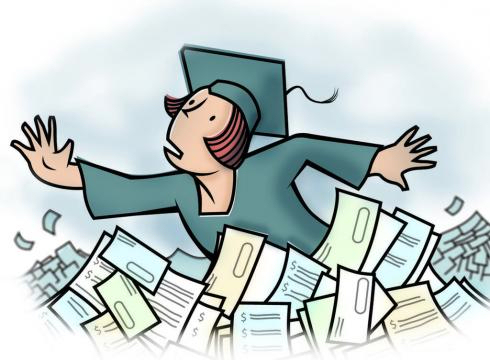In Debt?
With the recent economy in the condition that it is, loans and debts are multiplying by the day. These days people will get into debt to buy almost anything. Buying a car or a home? You can get a loan. People even get loans for appliances, furniture and big screen TV’s. People think, these loans replace having ready-cash. But more often than not these loans turn into long -term debts and then you are at the mercy of the lenders.
If you think that you can take out a loan and then not pay it back, think again. In this age of information and technology, you have to work very hard to keep your name and credit rating in top form. Here are a few consequences of a defaulted loan.
1) Debt Can Cause a Bad Credit Score
All your outstanding loans and debts go into your credit report and bring down your credit score. This will be detrimental to your future financial health and your ability to get any further loans when you really need them. Without a good credit rating, you won’t be able to get a credit card. And these days not having a credit card is very inconvenient.
2) Defaulted Debt Results in Wage Garnishment
Worse than a bad credit rating, if you have an unpaid loan then the lending institution can garnish up to 15% of your monthly wage to pay the debt. You have no say in this the money is taken off the top of your paycheck before you see it and because this is an extra hassle for your employer they don’t appreciate it. And it brands you as irresponsible, and a poor money manager thus making you look bad to your employer.
3) Debt Results in Unnecessary Harassment

4) Defaulting on Your Debt Can Result in You Paying Extra Money
Employing a collection agency costs the lenders money. So, they make you pay for it. As a result, the outstanding loan increases due to penalties and fees and you end up paying more money than if you had paid the loan on time.
Even though the situation looks very bleak, you do have some options.
Loan Deferment
If you are unable to pay a loan back, but not officially in default yet, then you can apply for a deferment. This will allow you some time before you have to start making the payments again. This is especially true for student loans under certain circumstances like loss of a job or illness. But, until your application is accepted and you have been granted a deferment, you have to continue making the regular payments.
Debt Consolidation
If you have more than one loan to pay and you are finding it hard to pay all your debts, then you can talk to the lenders or another lender about a debt consolidation loan. This will allow you to pay only one payment each month. This will not reduce the total amount you owe but will allow you to spread out the payments over a longer term with lower monthly payments. In the long run you will pay more interest but it may allow you to keep your head above water in the mean time.
Filling Bankruptcy
This is the last resort. Filling for bankruptcy will damage your credit record for the next 7 years, effectively preventing you from borrowing, and possibly hurting your chances for getting a job, so you should go for it only if there is no other way out.
For More Information See:

